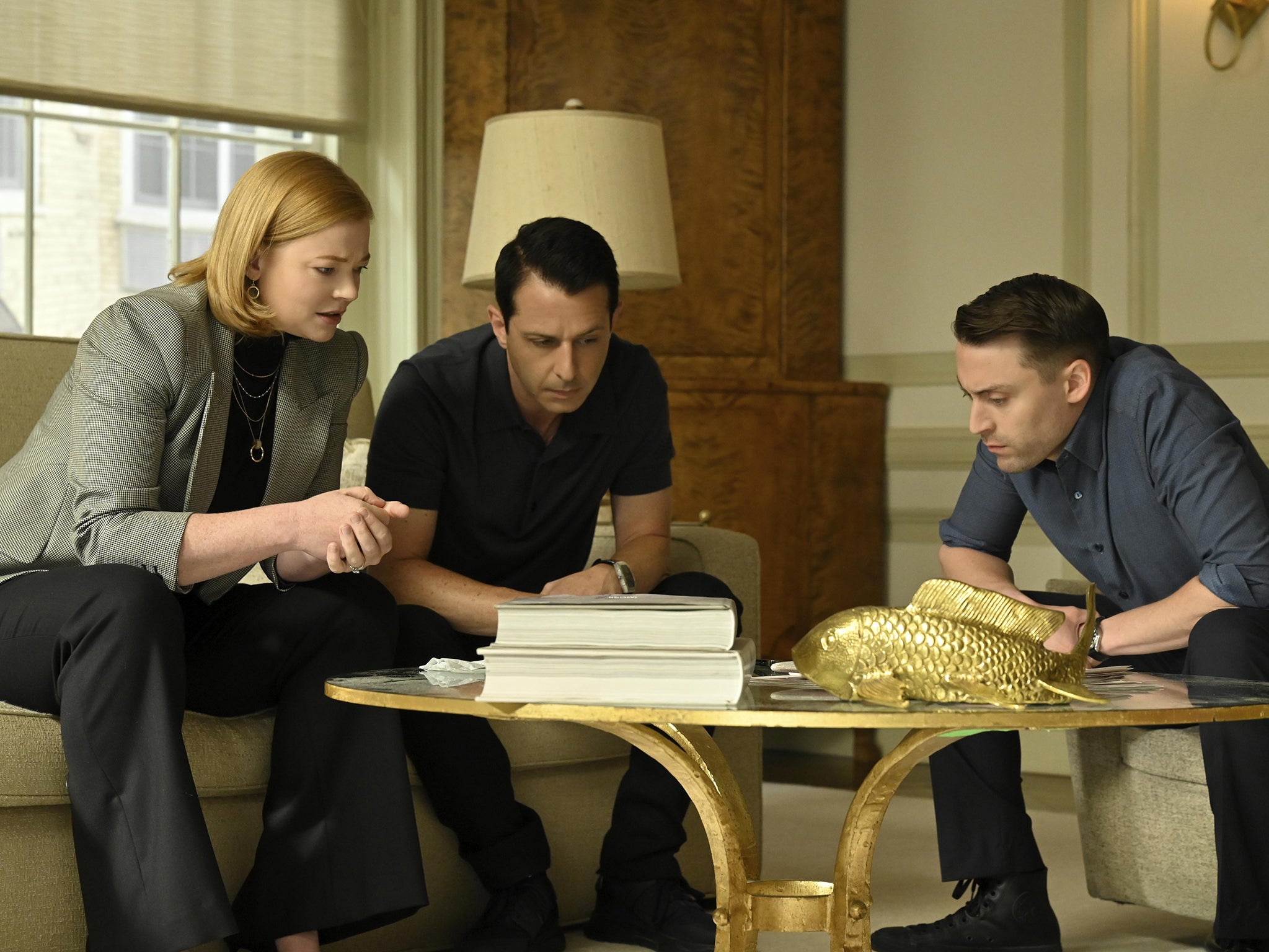
I used to love watching Succession – it was a form of pure escapism. Helicopters. Private jets. Extreme wealth. It felt like another world to me. The family at its centre are the Roys, a dysfunctional media dynasty worth billions of dollars and made up of Machiavellian schemers all clambering over one another to become top dog. I would watch from my living room sofa, as if looking into a different world. It’s certainly not something I imagined I could ever relate to. Then everything changed. My day-to-day life turned into a super low-grade version of a Succession episode – and now, it’s proving almost too much to watch.
I’m the youngest of five step-siblings, and the only child from my mum and dad’s marriage – the love child. My mum died over 20 years ago and I’ve always looked after my dad, who is now approaching 91. All of us have discussed moving him out of his big family home and into a ground-floor flat for practical reasons, which would entail selling his home. When my dad decided he actually didn’t want to move after all, everything kicked off. My older siblings started to fear that, as I’m my dad’s lasting power of attorney, I could sell my dad’s house from under his nose if he lost mental capacity. This is despite my holding this position for seven years with no complaints.
Our relationship has become fractured as a result, driven by ugly conversations and late-night, cloak-and-dagger meetings. It’s just like Succession, only taking place not in a luxurious Upper East Side pad but the rather less fantastical Upper Richmond Road in west London. I feel hurt and alone, estranged from my siblings and in a lot of pain. At one point in recent months I ended up hyperventilating into a paper bag in a minor injuries unit while waiting for an ECG. It wasn’t a heart attack; it was stress.
That’s why watching Succession has become so triggering for me. I feel overcome with a profound sadness. I’m not just bawling my eyes out over the recent, momentous death of family patriarch Logan Roy (Brian Cox), but as I watch his children squabble and betray one another. It’s the little moments: a passive-aggressive face-off between youngest daughter Shiv (Sarah Snook) and Logan’s estranged wife Marcia (Hiam Abbass), or eldest son Connor (Alan Ruck) claiming his siblings are “needy love sponges”. I see myself and my siblings in scenes like these – the sheer toll of being caught in a familial war zone. The truth is that the amount of cash involved is irrelevant. No matter how much money a family has to their name, once the notion of inheritance comes into play, otherwise loving people can go totally bananas.
I’m not alone. The more I talked about what was happening to me – especially when I’d arrive at the school gates all teary-eyed from another bombshell episode in my own life – the more horror stories I heard. A solicitor told me that squabbles about wills are “so normal”, as if they’re as routine as making a cup of tea. Even the vicar at my kid’s local church school gave me a knowing wink – his family had experienced appalling behaviour with regards to a will. So what is it about death that brings out the worst in people?
“Of course, sometimes it is about the money,” says Alison Regan, a partner in the trust and estate litigation team at Russell-Cooke solicitors. “But much of the time it’s also about deep disappointment or hurt about being left out of a will or fear that someone else would take control of money and squirrel it away for themselves.” She says that “people get frightened and nervous” over money and that “communication is the key”. The main disputes, she says, occur either “pre-death” (so attorneys and deputies dealing with the finances of someone who has lost capacity), or “post-death” (meaning challenges to wills and claims for financial provision from an estate). But it’s never straightforward.
My brother destroyed my mother. It tore the family apart. It was pure greed
“English law allows certain people to make a claim regardless of what a will says,” she says. “Rightly or wrongly, people sometimes have an expectation of inheritance and are blindsided when they are left out [of the will] for what may well be entirely logical reasons.” She adds that disinherited children may feel angry, but often because of feelings of rejection, which tend to explode during mediations. Regan strongly encourages people to, if they can, have “those difficult conversations” in advance of a death.
Sometimes even the most functioning of relationships can break down after someone dies, though. “When my father died in 2020, it really brought out some strange behaviour in his girlfriend,” recalls Henrietta*, a writer from London. “[She] convinced herself that I was in possession of his will and was hiding it from her.” She says she was made to feel like she was being “greedy and grabby” when she was truthfully doing nothing untoward. In fact, the Covid lockdown meant she wasn’t even able to get hold of her dad’s will from the company that was holding it. “When I eventually did get sight of the will, it turned out I was the sole beneficiary – which only enraged her further. That was the end of our relationship. She couldn’t stand me after that. It wasn’t a lot of money, but there was no conspiracy as she imagined. I was his only child and he just left what little he had to me.” She sighs. “It was a shame this drove us apart. For her it was all about recognition, not money. I would have liked to have stayed close to her.”
“Money doesn’t destroy families – it’s greed,” says Leila*, an architect who lives in west London. When her wealthy father died in Lebanon in 2015, he left his money to her mother. But behind the scenes, her elder brother, who was running the family property business with the blessing of their mother who “trusted him”, was stealing money and putting properties in his name. When the rest of the family discovered what he was up to, “he tried to put his own mother in jail [for] stealing our dad’s money”, Leila says. Then he went after the finances of Leila’s husband in the UK, while her mother’s assets were all frozen.

Leila says she and her family experienced “a living hell” for six years until 2021. With thousands of pounds already spent on lawyer fees to defend themselves, they decided to settle out of court. “We got peanuts, but we just needed it to stop,” she says. “[My brother] destroyed my mother. She couldn’t take it anymore. [Today], instead of enjoying life with her grandchildren, she’s devastated. It tore the family apart. It was pure greed.”
When it comes to families and money, nothing surprises me anymore. But as I wait to watch the next episode of Succession, there’s a part of me that is relieved it’s the show’s final season. I just hope I can call time on my own family saga soon, too.
*Names have been changed
‘Succession’ airs Sundays on HBO in the US and on Mondays on Sky Atlantic and Now in the UK







